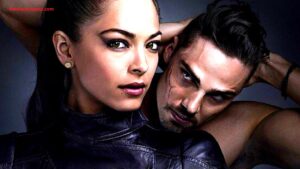
Explainer | Making elephants dance: A guide to Germany’s electoral system
Germany’s political parties prepared to rally their supporters and convert undecided voters Friday, two days before a national election which will determine who succeeds Chancellor Angela Merkel after 16 years in power.
Merkel’s center-right Union bloc, with Armin Laschet as its candidate for chancellorship, has made small gains within the polls in recent weeks. But it remains narrowly behind the center-left Social Democrats, headed by minister of finance Olaf Scholz.
The Greens, who are asserting their own candidate for chancellor for the primary time, are trailing in third place, but could play kingmakers when it involves forming a government Experts say one reason why this year’s German election is tighter and fewer predictable than usual is that the candidates are relative unknowns to most voters.
“It’s never the foremost boring election,” said Hendrik Traeger, a social scientist at the University of Leipzig. “There were those during which Angela Merkel stood because the incumbent and it had been simply an issue of who she would govern with.”
This time, Merkel’s party has struggled to energise its traditional base, which has thus far did not consider Laschet, the governor of North Rhine-Westphalia state The key question is whether or not these voters will overcome the Laschet hurdle and vote for the Union despite Laschet” said Peter Matuschek of the polling company Forsa. “Or will they abstain from the vote or maybe choose another party.”
The Union bloc will have its last big rally in Munich, while the Social Democrats are holding an occasion within the western city of Cologne. The Greens will stage their rally in nearby Duesseldorf Climate change has been cited because the most vital issue by many during this election. Youth groups decide to stage an outsized protest outside the chancellery Friday to demand tougher action on global climate change .
The economy and therefore the fallout from the coronavirus pandemic have also played a crucial role during the campaign, while migration has is a smaller amount of a priority to several voters than in 2017 Foreign policy — largely absent from the campaign — became a problem during the ultimate television debate Thursday, with the Greens calling for a tougher stance on China.
About 60.4 million Germans are eligible to vote for a replacement parliament on Sept. 26. The strongest party will seek to make a governing coalition The business-friendly Free Democrats are angling for an area in government this point , after pulling the plug on coalition talks at the eleventh hour after the 2017 election. The far-right Alternative for Germany is predicted to try to to well within the east, but other parties refuse to figure with them. The Left party remains a possible governing partner for the Greens and Social Democrats, an opportunity that has drawn alarm from conservatives.

